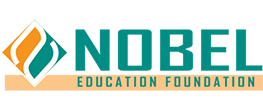Preparing to study in Canada from Nepal involves meeting specific requirements to ensure a smooth application process and successful admission. Here’s what you’ll need:
Academic Qualifications
To study in Canada, completion of secondary education (high school) with a diploma or equivalent is required. It’s crucial to ensure you meet the academic criteria set by Canadian universities or colleges. Each institution and program may have varying academic prerequisites, so it’s important to verify and fulfill these requirements accordingly.
Language Proficiency
Demonstrating proficiency in English or French is essential. You will need to take language proficiency tests such as IELTS, TOEFL, or equivalent and achieve the required scores as per the institution’s language standards.
Admission Application
Completing and submitting a comprehensive application form to your chosen Canadian institution is essential. This form typically includes personal details, and academic history, and may involve an application fee.
Statement of Purpose (SOP)
Crafting a compelling SOP is vital. This statement should provide insights into your academic background, career aspirations, and reasons for choosing the particular program or institution in Canada.
Transcripts
Obtain official transcripts from your previous educational institutions. These transcripts should showcase your academic performance and qualifications, essential for admission consideration.
Letters of Recommendation
Acquiring strong letters of recommendation from teachers, professors, or employers is advisable. These letters should highlight your strengths, achievements, and suitability for the chosen program.
Standardized Tests
Depending on the program or institution, you may need to take standardized tests like GRE, GMAT, SAT, or specific subject-based tests. Check the requirements and prepare accordingly.
Financial Proof
Providing evidence of your financial capability to cover tuition fees, living expenses, and other costs while studying in Canada is mandatory. This proof ensures you can sustain yourself during your academic tenure.
Study Permit
If your intended study duration in Canada exceeds six months, applying for a study permit beforehand is essential. This permit allows you to study in Canada legally.
Health Insurance
Obtaining health insurance coverage through provincial health plans or private insurance is mandatory for international students studying in Canada. This coverage ensures access to healthcare facilities during your stay.
Medical Examination
Some students may be required to undergo a medical examination based on program prerequisites or the length of their stay. This examination ensures compliance with health standards and poses no risk to public health in Canada.












